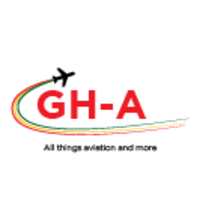10th Feb 2020 | Emmanuel Kojo
Ghana and Africa in general aviation’s sector have the potential to fuel economic growth.
Air transport supports 6.2 million jobs and $55.8 billion in African economic activity. That is 1.8% of all employment and 2.6% of all GDP in African countries in 2016.
Currently, Africa has 731 airports and 419 airlines with an aviation industry that supports around 6.9 million jobs and $80 billion in economic activity.
According to the International Air Transport Association (IATA), the continent will become one of the fastest-growing aviation regions in the next 20 years, with an annual expansion of nearly five percent.
However, amid the opportunities, the sector faces several challenges including weak infrastructure, high ticket prices, poor connectivity and lack of liberalisation.
Airport infrastructure in most countries is outdated and cannot effectively serve the growing passengers or cargo volumes.
Airlines and airports are often managed by government entities or regulatory bodies while foreign investment is discouraged.
In 2016 alone, the aviation industry in Ghana is said to contribute $72.5 billion to Africa’s GDP, and across the continent, it supports 6.8 million jobs.
“The air transport sector also provides significant economic benefits, playing a major role in the social development of people and communities all over the globe, allowing people to travel for educational opportunities and cultural exchange, more broadly. Across Africa, specifically, air transport supports 6.8 million jobs and contributes $72.5 billion to the African continent’s GDP,” a report by the Air Transport Action Group (ATAG) said.
It added: “Africa is the second-fastest-growing region in the world as far as international air traffic is concerned. However, the overly strict regulatory environment in the region must be simplified if Africa’s true economic potential is to be realised. For decades, industry leaders have been urging governments in Africa to unlock this potential by moving ahead with the policy of open skies in the region, allowing aviation services to flourish and continue to support growth. Industry costs in Africa, including passenger fees, are among the highest in the world. These regulatory arrangements should be improved.”
However, the new terminal set at the Kotoka International Airport (KIA) aims to ease congestion and is expected to help facilitate tourism growth in Ghana.
The project has also provided a boost for the local economy, generating an estimated 900 temporary jobs during the two-year construction phase, with plans to sustain a further 760 permanent jobs into the future.
Source: gh-aviation






Post comments (0)